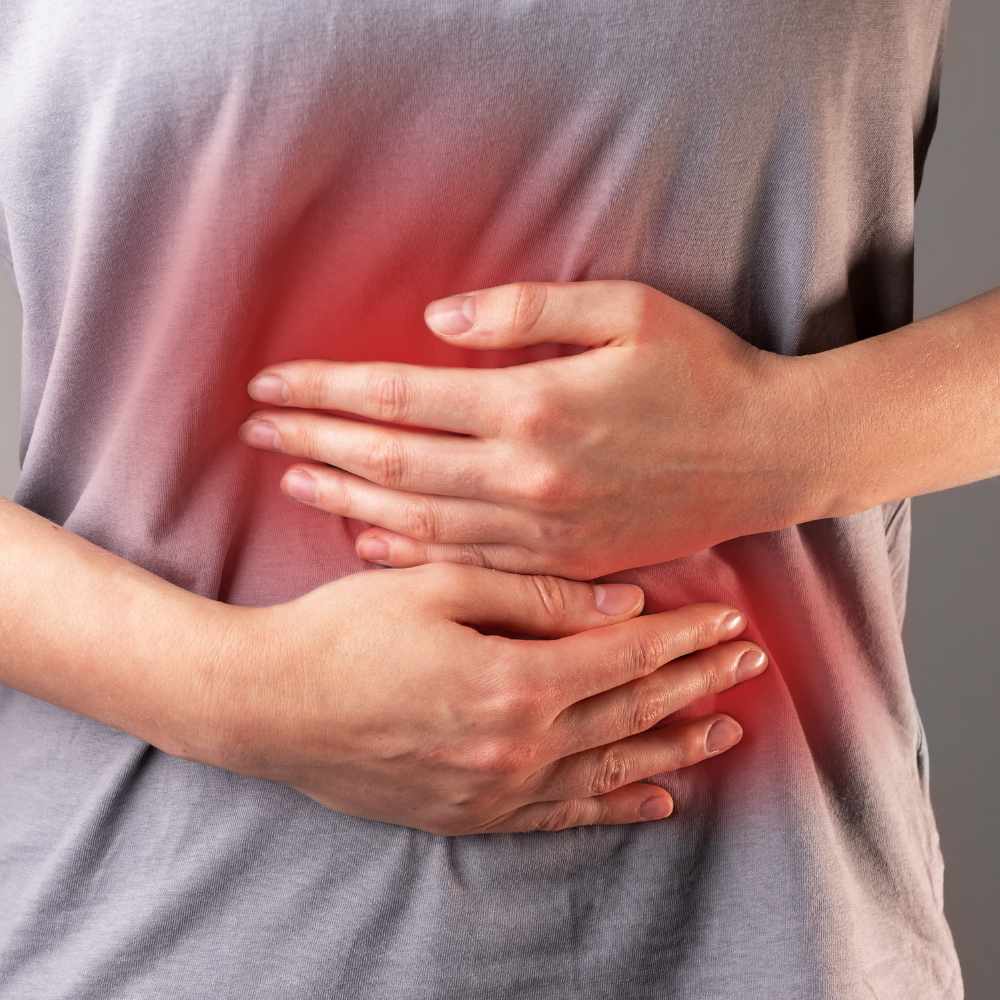Digestive problems are very common all over the world. These issues, which affect the digestive system, can range from mild discomfort to serious conditions that need medical care. Understanding the reasons, symptoms, and treatment options for different digestive disorders is important for keeping your digestive system healthy and feeling good overall.
In this article, we will talk about the most common gastrointestinal problems, what can cause them, and how to manage and treat them effectively.
What Are Gastrointestinal Problems?
These problems refer to any issues affecting the parts of your body involved in digestion, like your esophagus, stomach, intestines, liver, gallbladder, and pancreas. It can be caused by things like infections, inflammation, the foods you eat, your lifestyle, or other health conditions.
Digestive problems can be short-term or long-term, and the symptoms can range from mild discomfort to severe pain and discomfort.
Common gastrointestinal problems include acid reflux, irritable bowel syndrome (IBS), gastritis, celiac disease, Crohn’s disease, and ulcerative colitis. Each of these conditions presents unique challenges and requires different approaches to diagnosis and treatment.
Common Causes of Gastrointestinal Problems
- Diet and Nutrition: Eating unhealthy foods, like processed foods, foods high in fat, or foods low in fiber, can cause problems with your digestion. Also, eating too much food at once or eating too quickly can lead to issues like indigestion and bloating.
- Infections: Viral, bacterial, or parasitic infections can lead to gastrointestinal disturbances. Conditions like gastroenteritis, commonly known as the stomach flu, result from infections that cause inflammation of the stomach and intestines.
- Stress: Psychological factors like stress and anxiety can affect gut health. Stress triggers the release of hormones that can disrupt normal digestive processes, leading to symptoms like nausea, diarrhea, and abdominal pain.
- Medications: Some medications, like antibiotics, anti-inflammatory drugs, and antacids, can cause side effects that impact the digestive system. These medications can irritate the lining of the stomach, leading to conditions like gastritis (inflammation of the stomach) or ulcers.
- Underlying Health Conditions: Ongoing health conditions like diabetes, autoimmune diseases, and thyroid disorders can directly affect digestive health. These types of conditions can interfere with the normal functioning of the digestive system, which can then lead to a variety of digestive problems.

Symptoms of Gastrointestinal Problems
The symptoms of digestive problems can vary depending on the specific issue and how serious it is. However, some of the most common symptoms include:
- Abdominal pain or cramping
- Bloating and gas
- Nausea and vomiting
- Diarrhea or constipation
- Heartburn or acid reflux
- Loss of appetite
- Blood in the stool
- Unexplained weight loss
If these symptoms persist or worsen, it is important to consult a healthcare provider for a proper diagnosis and treatment plan.
Common Types of Gastrointestinal Problems
Digestive issues can show up in different ways, each with its own symptoms and challenges. Here are some of the most common digestive disorders:
1. Acid Reflux (GERD)
Gastroesophageal reflux disease (GERD) happens when stomach acid flows back up into the esophagus, which is the tube that connects your mouth to your stomach. This can cause irritation and discomfort. The main symptom of GERD is heartburn, which feels like a burning sensation in your chest. Other symptoms can include trouble swallowing, bringing up food or a sour taste in your mouth. GERD is often triggered by certain foods, being overweight, smoking, or lying down right after eating.
2. Irritable Bowel Syndrome (IBS)
IBS, or Irritable Bowel Syndrome, is a long-term condition that affects the large intestine. It can cause symptoms like stomach pain, cramps, bloating, gas, diarrhea, and constipation. IBS is a functional disorder, which means it’s related to how the digestive system works, not a physical problem with the body. Things like stress, certain foods, and hormonal changes can make IBS symptoms worse.
3. Inflammatory Bowel Disease (IBD)
Inflammatory bowel disease encompasses two chronic conditions: Crohn’s disease and ulcerative colitis. Both conditions involve inflammation of the digestive tract, but they affect different parts. Crohn’s disease can occur anywhere in the gastrointestinal tract, while ulcerative colitis primarily affects the colon and rectum. Symptoms include severe diarrhea, abdominal pain, fatigue, and weight loss.
4. Celiac Disease

Celiac disease is an autoimmune disorder where the ingestion of gluten (a protein found in wheat, barley, and rye) triggers an immune response that damages the small intestine. This damage impairs nutrient absorption and leads to symptoms like diarrhea, bloating, and fatigue. The only treatment for celiac disease is a strict gluten-free diet.
5. Gastritis
Gastritis is the inflammation of the stomach lining, often caused by infections (such as Helicobacter pylori), prolonged use of NSAIDs, or excessive alcohol consumption. Symptoms of gastritis include stomach pain, nausea, vomiting, and indigestion. If left untreated, chronic gastritis can lead to ulcers or increase the risk of stomach cancer.
Diagnosing Gastrointestinal Problems
Diagnosing digestive problems usually involves a few different steps. First, your healthcare provider will ask you about your medical history and symptoms. They’ll also do a physical exam. Then, they may order some tests to help figure out what’s causing your digestive issues. These tests can include things like blood tests, imaging scans, or procedures to get a closer look at your digestive system.
- Blood Tests: To check for signs of infection, inflammation, or anemia.
- Endoscopy: A procedure where a thin, flexible tube with a camera is inserted into the digestive tract to examine the esophagus, stomach, and small intestine.
- Colonoscopy: A procedure used to examine the colon and rectum for signs of inflammation, polyps, or cancer.
- Stool Tests: To detect infections, blood, or other abnormalities in the stool.
- Imaging Studies: Tests like X-rays, CT scans, or MRI can help visualize the digestive organs and identify structural issues.
Treatment Options for Gastrointestinal Problems
The treatment for digestive problems depends on what’s causing the issue and how severe it is. Some possible treatment options include:

- Dietary Changes: Adjusting the diet to include more fiber, reduce fatty or spicy foods, and avoid trigger foods can help manage many gastrointestinal problems. For individuals with celiac disease, a gluten-free diet is essential.
- Medications: Depending on the condition, doctors may prescribe medications to reduce stomach acid (e.g., proton pump inhibitors), relieve pain, control diarrhea, or reduce inflammation. Antibiotics may be required for bacterial infections.
- Lifestyle Modifications: Quitting smoking, reducing alcohol consumption, managing stress, and maintaining a healthy weight can improve digestive health and reduce the risk of gastrointestinal problems.
- Surgical Intervention: In severe cases, such as those involving IBD or cancer, surgery may be required to remove damaged or diseased parts of the digestive tract.
Prevention of Gastrointestinal Problems
To help prevent gastrointestinal problems, it’s important to live a healthy lifestyle and be mindful of what you eat. Some things you can do to help prevent digestive issues include:
- Eat a Balanced Diet: A diet rich in fruits, vegetables, whole grains, and lean proteins supports healthy digestion. Limiting processed foods and avoiding excessive consumption of caffeine, alcohol, and fatty foods can reduce the risk of digestive problems.
- Stay Hydrated: Drinking plenty of water aids in digestion and helps prevent constipation.
- Exercise Regularly: Physical activity promotes healthy digestion and helps prevent issues like constipation and bloating.
- Manage Stress: Stress management techniques, such as yoga, meditation, or deep breathing exercises, can help reduce stress-related gastrointestinal symptoms.
- Regular Check-Ups: Regular visits to a healthcare provider can help catch potential gastrointestinal problems early and prevent them from becoming severe.
Conclusion
Gastrointestinal problems are very common and can greatly affect a person’s quality of life. By learning about the causes, symptoms, and treatment options, people can take steps to maintain a healthy digestive system and prevent long-term issues.
- Did you find this article helpful? Visit more of our blogs! Mr Business Magazine







